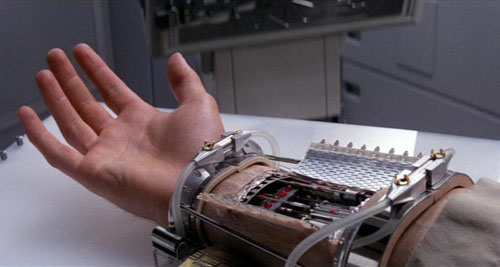I recently ran across this interesting video during one of my many sessions with StumbleUpon. The video via GeeksAreSexy (shown after the “more”) demonstrates a guy in a robotic exoskeleton performing a variety of tasks to demonstrate the strength of the device. This was a weird coincidence because I was in the process of reading Starship Troopers by Robert A. Heinlein. His Mobile Infantry armor was much more elaborate, but I’m always interested when things from science fiction start to become science fact.
I was a bit skeptical of the cable hooked up to the back, because that didn’t seem very “portable,” but the video goes on to explain that the final version will be 100% portable with varying levels of armor protection. What is most interesting is that they talk about the goal of making the exoskeleton operate as an autonomous robot when the person steps out of the suit. I’m sure lots of research will have to be completed before the programming of such a robot would be possible.
